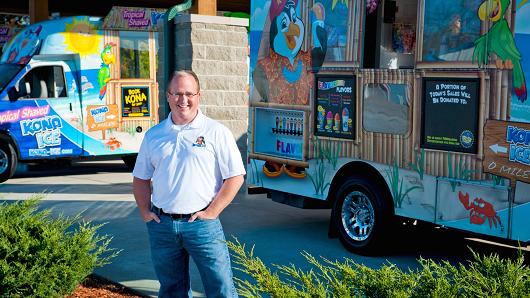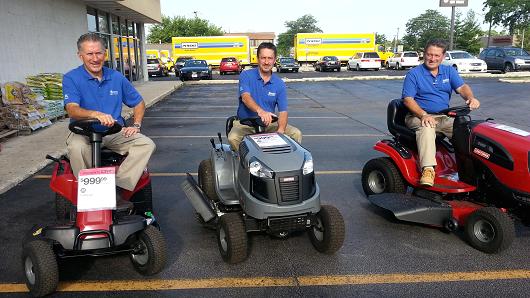After graduating from West Point, Scott Douglas spent five years in the Army in the Gulf War, then earned an MBA from Duke and spent two decades toiling away in supply-chain management and purchasing for Fortune 500 companies, burning out before he hit 50.
By 2011, Douglas found that he couldn't stop thinking about Mellow Mushroom, a scarce pizza-and-beer chain started by hippies in the 1970s that he had visited in a few different states. The brand, known for selling craft beer and for each shop's own funky atmosphere, designed to reflect the culture of each neighborhood, is also expensive: It cost Douglas roughly $1 million to license and open his Mellow Mushroom.
"My first thought was, Don't do this—it's an emotional decision, and it doesn't make sense," said Douglas, 49, who had no prior restaurant experience. "But I was obsessed, and I got a sense that I would fit in very well with the culture." Douglas is now generating more than $3 million in annual sales.
Downsizing in the corporate world has also contributed to the new face of franchise success. It led Jeff Tews to seize an opportunity tied to the aging of the baby boomer generation.
With more than 30 years of managerial experience at telecom companies and, most recently, at U.S. Bank, Tews wasn't necessarily burned out, but instead found himself at a crossroads in 2006 when his position at the bank was eliminated. After a few months of living off his severance and corroborating with a career counseling group, Tews made two big realizations: He wanted work helping other people, and he didn't want to jump into another corporation where he'd have to "learn a new culture and insert myself into a team that was already there," he said.
Tews turned down an executive-level job offer at a big company and instead started researching franchising opportunities with his wife, Susan Rather, a former government employee. They became the fourth franchisees of BrightStar Care, a provider of in-home care for adults, elders and children. The firm also offers medical-staffing services for health-care facilities.
Figthing fire with....franchises



